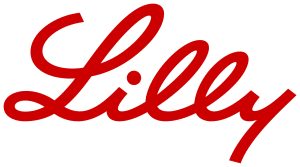
Click on ‘Explanation about the score’ sign next to each entry to expand and learn more.
The company should publicly commit to human rights in relation to product development and marketing, by adopting an official human rights policy statement recognising the right to the highest attainable standard of health. The company should endeavour to integrate human rights into its strategies, policies, programmes, projects, and activities.
The company should also have a publicly available global access plan for their Covid-19 product, based on human rights standards, with measurable targets and lines of accountability.
Eli Lilly has made a general commitment to equitable access to medicines in low- and middle-income countries.
It has also published ‘Principles of Covid-19 antibody therapy pricing and access’, and an Infographic on access and affordability principles for neutralizing antibodies.

Eli Lilly has not published a human rights statement.

The company should constructively engage with international initiatives for the equitable distribution of vaccines and therapeutics, such as the Covid-19 Technology Access Pool (C-TAP) or the Medicines Patent Pool (MPP), and the ACT Accelerator (COVAX). The company should also publicly commit to not enforcing the exclusive rights of Covid-19 related patents, and enter into non-exclusive, transparent licensing agreements for its Covid-19 products with other companies.
Eli Lilly does not commit to C-TAP or the MPP.

Eli Lilly has not made a commitment not to enforce patents.Eli Lilly has not signed an agreement with the ACT Accelerator.

Eli Lilly has not signed an agreement with the ACT Accelerator.

Eli Lilly has not entered into any licensing agreements so far.

The company should engage in efforts to further equitable distribution of Covid-19 vaccines/therapeutics, by equitably distributing its supplies globally, devising fair pricing strategies, and making the active ingredient for its product available to other manufacturers. The company should also engage in full technology transfer to other manufacturers, including the necessary transfer of skills, legal components, knowledge and intellectual property. Where applicable, the company should agree to waive rights in regulatory test data, and refrain from enforcing TRIPS+ measures.
There is no evidence that Eli Lilly makes the active ingredient for its therapeutic available to other manufacturers.

Eli Lilly has not committed to full technology transfer to any other manufacturers.

Eli Lilly states: “We will pursue tiered pricing arrangements for government purchases of our antibody therapies, based on the World Bank’s gross national income (GNI) per capita data. The pricing will be tiered based on countries’ ability to pay, with wealthy countries paying the same as one another, middle-income countries receiving a steep discount, and the poorest countries paying only marginal costs. We will continue our work with philanthropic organizations such as the Bill & Melinda Gates Foundation to make our antibody therapies available to these low- and middle-income countries, furthering our goal of reaching as many patients with unmet needs as we can, no matter where they live.
While the specific pricing for our potential combination therapy is not yet available, Lilly will offer bamlanivimab monotherapy at $1,250 per vial to wealthy countries, if authorized by the country’s regulators.”
Eli Lilly has therefore made a commitment to tiered pricing, but this has not been concretised yet.

[Only applies to vaccines]
No information was found on this criterion.

No information was found on this criterion.

The company should be as transparent as possible, by publishing its research and development costs, profit margin, average costs of production, and production capacity for its Covid-19 product. It should also disclose the amount of public subsidies received during product development and/or testing. Licensing agreements should also be made publicly available and clinical trials should be registered in public repositories.
Eli Lilly publishes its overall research and development costs for the year 2021, but these are not specific to Bamlanivimab & Etesevimab.

Eli Lilly states: “We expect to produce a modest financial return for our investors by the end of 2021”
The company recognized worldwide revenue of $1.063 billion from COVID-19 antibodies during the quarter compared with $871.2 million in the fourth quarter of 2020.
However, Eli Lilly has not specified its profit margin for Bamlanivimab & Etesevimab.

Eli Lilly has not published the average costs of producing Bamlanivimab & Etesevimab.

Eli Lilly plans to produce 1 million doses by mid-2021.

Eli Lilly states: “We have self-funded the research, development and manufacturing costs for our potential COVID-19 treatments, not accepting money from governments”. However, it is known that “Operation Warp Speed invested heavily in the treatment throughout its development” for Bamlanivimab, which was in fact subsidized through advance purchase agreements. See HHS page.

Eli Lilly has not published the text of any licensing agreements.

Eli Lilly registers its clinical trials on clinicaltrials.gov

Never miss an update from the Pharmaceutical Accountability Foundation!